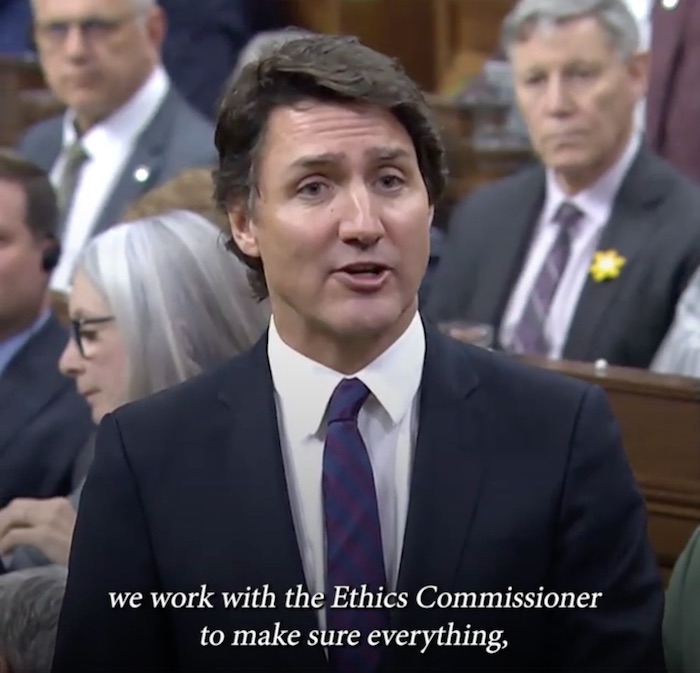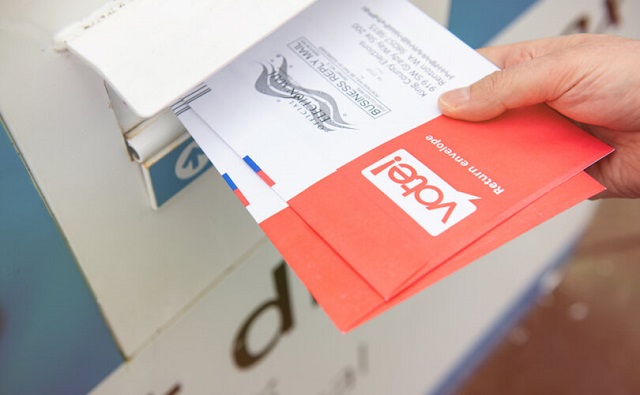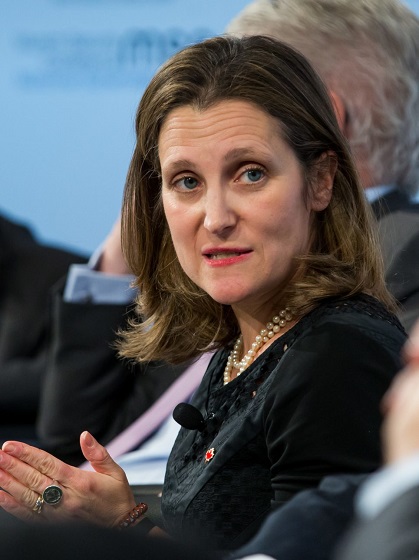Opinion
Another vacation controversy for PM Trudeau leads to fiery exchange in House of Commons

It’s been said Canadian PM Justin Trudeau simply can’t leave the country without embarrassing himself.
That may not be entirely true, though it does seem his frequent international (and cross continent) vacations are likely not planned by a master strategist.
From his relaxing conflict of interest violation on Aga Khan’s Island to the adrenalin rush of marking the very first Truth and Reconciliation Day on a surf board, it’s getting more and more difficult for the PM and his family to enjoy their ‘lifestyles of the rich and famous’ while convincing Canadians they care deeply about ‘the little guy’.
Conservative leader Pierre Poilievre enjoys pointing this out almost as much as the Trudeaus like jetting away from Canadian airspace. The result was this fiery and entertaining Question Period exchange which Canadians who aren’t fortunate enough to be on screen planning their next vacation will likely get a charge out of.
From the Facebook page of Pierre Poilievre
Business
Honda deal latest episode of corporate welfare in Ontario

From the Fraser Institute
By Jake Fuss and Tegan Hill
If Honda, Volkswagen and Stellantis are unwilling to build their EV battery plants in Ontario without corporate welfare, that sends a strong signal that those projects make little economic sense.
On Thursday, the Trudeau and Ford governments announced they will dole out an estimated $5 billion in corporate welfare to Honda so the auto giant can build an electric vehicle (EV) battery plant and manufacture EVs in Ontario. This is the third such deal in Ontario, following similar corporate welfare handouts to Volkswagen ($13.2 billion) and Stellantis ($15.0 billion). Like the previous two deals, the Honda deal comes at a significant cost to taxpayers and will almost certainly fail to create widespread economic benefits for Ontarians.
The Trudeau and Ford governments finalized the Honda deal after more than a year of negotiations, with both governments promising direct incentives and tax credits. Of course, this isn’t free money. Taxpayers in Ontario and the rest of Canada will pay for this corporate welfare through their taxes.
Unfortunately, corporate welfare is nothing new. Governments in Canada have a long history of picking their favoured firms or industries and using a wide range of subsidies and other incentives to benefit those firms or industries selected for preferential treatment.
According to a recent study, the federal government spent $84.6 billion (adjusted for inflation) on business subsidies from 2007 to 2019 (the last pre-COVID year). Over the same period, provincial and local governments spent another $302.9 billion on business subsidies for their favoured firms and industries. (Notably, the study excludes other forms of government support such as loan guarantees, direct investments and regulatory privileges, so the total cost of corporate welfare during this period is actually much higher.)
Of course, when announcing the Honda deal, the Trudeau and Ford governments attempted to sell this latest example of corporate welfare as a way to create jobs. In reality, however, there’s little to no empirical evidence that corporate welfare creates jobs (on net) or produces widespread economic benefits.
Instead, these governments are simply picking winners and losers, shifting jobs and investment away from other firms and industries and circumventing the preferences of consumers and investors. If Honda, Volkswagen and Stellantis are unwilling to build their EV battery plants in Ontario without corporate welfare, that sends a strong signal that those projects make little economic sense.
Unfortunately, the Trudeau and Ford governments believe they know better than investors and entrepreneurs, so they’re using taxpayer money to allocate scarce resources—including labour—to their favoured projects and industries. Again, corporate welfare actually hinders economic growth, which Ontario and Canada desperately need, and often fails to produce jobs that would not otherwise have been created, while also requiring financial support from taxpayers.
It’s only a matter of time before other automakers ask for similar handouts from Ontario and the federal government. Indeed, after Volkswagen secured billions in federal subsidies, Stellantis stopped construction of an EV battery plant in Windsor until it received similar subsidies from the Trudeau government. Call it copycat corporate welfare.
Government handouts to corporations do not pave the path to economic success in Canada. To help foster widespread prosperity, governments should help create an environment where all businesses can succeed, rather than picking winners and losers on the backs of taxpayers.
Authors:
Addictions
Why can’t we just say no?

From the Frontier Centre for Public Policy
Drug use and violence have become common place in hospitals. Drug-addicted patients openly smoke meth and fentanyl, and inject heroin. Dealers traffic illicit drugs. Nurses are harassed, forced to work amidst the toxic fumes from drugs and can’t confiscate weapons. In short, according to one nurse, “We’ve absolutely lost control.”
“Defining deviancy down” is a cultural philosophy that emerged in the United States during the 1990s.
It refers to society’s tendency to adjust its standards of deviancy “down,” so that behaviours which were once unacceptable become acceptable. Over time, this newly- acceptable behaviour can even become society’s norm.
Of course, the converse must also be true — society looks down on those who label social behaviours “wrong,” deeming them moralistic, judgemental or simply out of touch with the realities of modern life.
Thirty years later, this philosophy is entrenched in British Columbia politics and policies. The province has become a society that cannot say “no” to harmful or wrong behaviours related to drug use. It doesn’t matter if you view drug use as a medical issue, a law-and-order issue, or both – we have lost the ability to simply say “no” to harmful or wrong behaviour.
That much has become abundantly clear over the past two weeks as evidence mounts that BC’s experiment with decriminalization and safe supply of hard drugs is only making things worse.
A recently-leaked memo from BC’s Northern Health Authority shows the deleterious impact these measures have had on BC’s hospitals.
The memo instructs staff at the region’s hospitals to tolerate and not intervene with illegal drug use by patients. Apparently, staff should not be taking away any drugs or personal items like a knife or other weapons under four inches long. Staff cannot restrict visitors even if they are openly bringing illicit drugs into the hospital and conducting their drug transactions in the hallways.
The public was quite rightly outraged at the news and BC’s Health Minister Adrian Dix quickly attempted to contain the mess by saying that the memo was outdated and poorly worded.
But his facile excuses were quickly exposed by publication of the very clearly worded memo and by nurses from across the province who came forward to tell their stories of what is really happening in our hospitals.
The President of the BC Nurses Union, Adriane Gear, said the issue was “widespread” and “of significant magnitude.” She commented that the problems in hospitals spiked once the province decriminalized drugs. In a telling quote, she said, “Before there would be behaviours that just wouldn’t be tolerated, whereas now, because of decriminalization, it is being tolerated.”
Other nurses said the problem wasn’t limited to the Northern Health Authority. They came forward (both anonymously and openly) to say that drug use and violence have become common place in hospitals. Drug-addicted patients openly smoke meth and fentanyl, and inject heroin. Dealers traffic illicit drugs. Nurses are harassed, forced to work amidst the toxic fumes from drugs and can’t confiscate weapons. In short, according to one nurse, “We’ve absolutely lost control.”
People think that drug policies have no impact on those outside of drug circles – but what about those who have to share a room with a drug-smoking patient?
No wonder healthcare workers are demoralized and leaving in droves. Maybe it isn’t just related to the chaos of Covid.
The shibboleth of decriminalization faced further damage when Fiona Wilson, the deputy chief of Vancouver’s Police Department, testified before a federal Parliamentary committee to say that the policy has been a failure. There have been more negative impacts than positive, and no decreases in overdose deaths or the overdose rate. (If such data emerged from any other healthcare experiment, it would immediately be shut down).
Wison also confirmed that safe supply drugs are being re-directed to illegal markets and now account for 50% of safe supply drugs that are seized. Her words echoed those of BC’s nurses when she told the committee that the police, “have absolutely no authority to address the problem of drug use.”
Once Premier David Eby and Health Minister Adrian Dix stopped denying that drug use was occurring in hospitals, they continued their laissez-faire approach to illegal drugs with a plan to create “safe consumption sites” at hospitals. When that lacked public appeal, Mr. Dix said the province would establish a task force to study the issue.
What exactly needs to be studied?
The NDP government appears to be uninformed, at best, and dishonest, at worst. It has backed itself into a corner and is now taking frantic and even ludicrous steps to legitimize its experimental policy of decriminalization. The realities that show it is not working and is creating harm towards others and toward institutions that should be a haven for healing.
How quickly we have become a society that lacks the moral will – and the moral credibility – to just to say “no.”
Susan Martinuk is a Senior Fellow with the Frontier Centre for Public Policy and author of Patients at Risk: Exposing Canada’s Health-care Crisis.
-

 espionage7 hours ago
espionage7 hours agoOne in five mail-in voters admitted to committing voter fraud during 2020 election: Rasmussen poll
-

 Censorship Industrial Complex2 days ago
Censorship Industrial Complex2 days agoJordan Peterson, Canadian lawyer warn of ‘totalitarian’ impact of Trudeau’s ‘Online Harms’ bill
-

 Business6 hours ago
Business6 hours agoHonda deal latest episode of corporate welfare in Ontario
-

 Opinion2 days ago
Opinion2 days agoThe Climate-Alarmist Movement Has A Big PR Problem On Its Hands
-

 Brownstone Institute2 days ago
Brownstone Institute2 days agoThe Teams Are Set for World War III
-

 Alberta2 days ago
Alberta2 days agoFormer senior financial advisor charged with embezzling millions from Red Deer area residents
-

 Frontier Centre for Public Policy1 day ago
Frontier Centre for Public Policy1 day agoBudget 2024 as the eve of 1984 in Canada
-

 COVID-191 day ago
COVID-191 day agoPfizer reportedly withheld presence of cancer-linked DNA in COVID jabs from FDA, Health Canada











